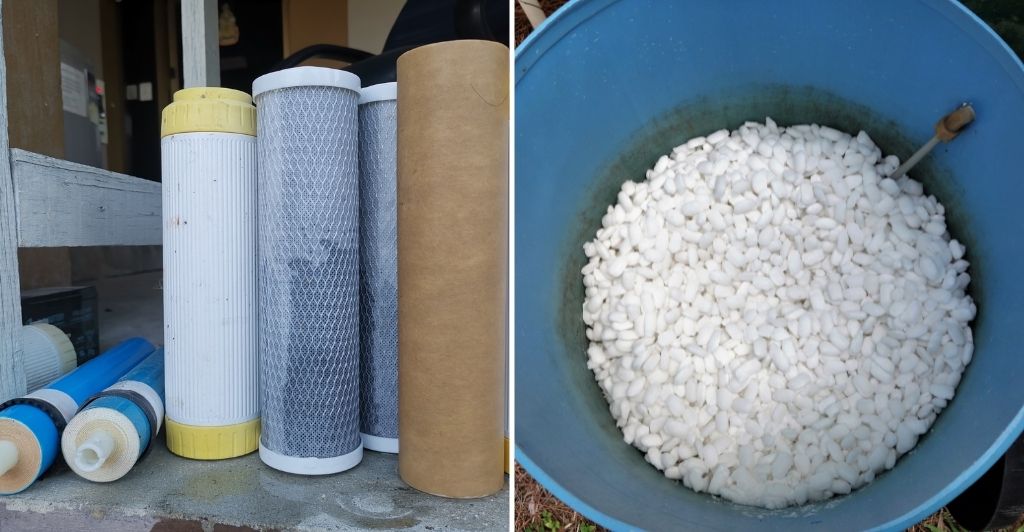Water is a necessity, but the scarcity of clean and healthy drinking water makes it difficult for people to access good quality water. The type of water supply you get in your house poses a significant impact on your health.
To ensure that you get healthy drinking water, you should invest in a water softener or water filter as per your requirements. If you’re wondering about the difference between water filters and water softeners, you’re in the right place.
In this guide, we will go through water filter vs water softener in detail while also discussing what hard water is. Let’s start.
Everything About Hard Water
Water that comes with high amounts of magnesium and calcium is known as hard water. If you often find spots on utensils and soap scum in your washroom, it means that you get a hard water supply in your home.
Hard water doesn’t harm your health, but it can make it challenging to perform household chores as it creates inefficiency. Hard water makes you use more detergent and soap than necessary. Moreover, it also impacts the life of the appliances and equipment that come in contact with the hard water supply in your house.
What are Water Softeners?
Water softeners get rid of minerals like magnesium and calcium that make the water hard and deteriorate its quality. These systems use the process of ion exchange to eliminate calcium and magnesium from water. They act as chemical magnets as they force the water to pass through a beaded bed of sodium ions.
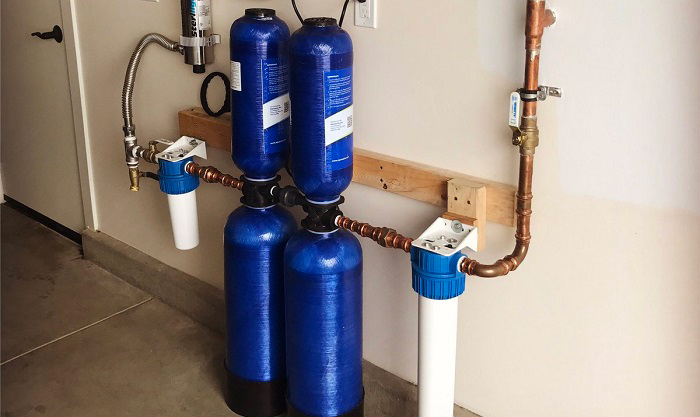
In this process, the positively charged sodium ions get exchanged with the ions of magnesium, calcium, and other chemicals that make the water hard. This further eliminates these chemicals from the water and ensures that you get a soft water supply in your house.
Soft water prevents clogging, eliminates soap scum, and ensures that the appliances in your house don’t get destroyed. You should note that water softeners don’t purify the water, and hence, they don’t make it safe for consumption.
What Do Water Softeners Do?
Calcium, magnesium, and other harmful chemicals form hard water. Water softeners remove these chemicals to provide soft water for use. This is done with the help of sodium ions that exchange ions with magnesium and calcium to ensure that these chemicals get removed from the water, making it soft and suitable for use.
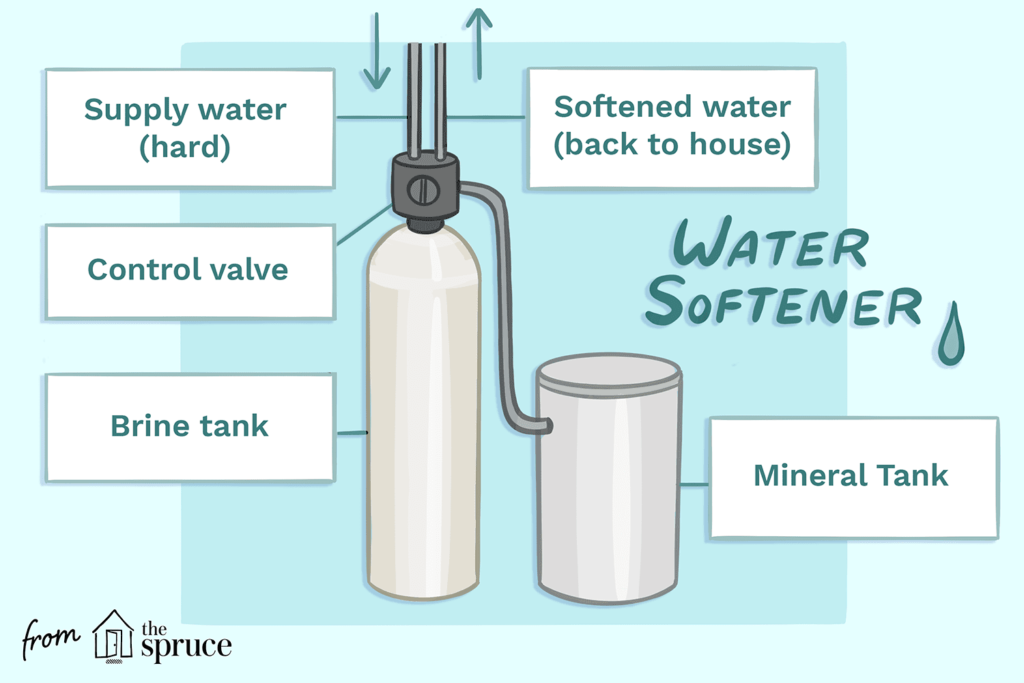
Since water softeners work towards turning hard water into soft water, they don’t focus on eliminating contaminants from water to make it clean for consumption purposes.
Water softening is an essential process as it increases the efficiency and effectiveness of your appliances that use water.
Moreover, it also ensures that you don’t have to use excessive amounts of cleaning supplies. Another benefit of using soft water is that it cleans the dishes effectively and is suitable for your hair and skin.
What are Water Filters?
A water filtration system helps with the removal of unwanted particles and harmful components present in tap water. These filters eliminate contaminants such as bacteria, viruses, chlorine, and lead, making the water unfit for consumption.

A water filter improves water quality by getting rid of any foul smell and taste in your drinking water. It effectively removes all the dissolved solids found in the water alongside eliminating any harmful chemicals.
Different types of water filters use different methods to clean the water. Numerous types of water filtration systems like under sink, whole house, shower, and countertop water filters are available in the market. You can pick the type that fits your requirements in the best way possible.
What do Water Filters Remove?
When we talk about water softeners, we think of the removal of chemicals such as calcium and magnesium that cause hard water. Water softeners are made to cater to problems like the buildup of scum on appliances and spots on utensils.
On the other hand, a water filter focuses on providing you with clean and safe drinking water by removing numerous contaminants. Water filtration systems remove unwanted components such as:
- Chlorine
- Pesticides
- Chloramine
- Cadmium
- Lead
- Iron
- Copper
- Particulates
- Arsenic
- Sediments
- PFOS
- Hexavalent chromium
- PFOA
Various water filter options are available today. Let’s quickly discuss them in detail.
One of the most common water filtration systems used across households is a reverse osmosis water filtration system. An RO water filter effectively removes contaminants and dissolved solids from water using a semi-permeable membrane that forces water to pass through it, leaving behind all the harmful particles.
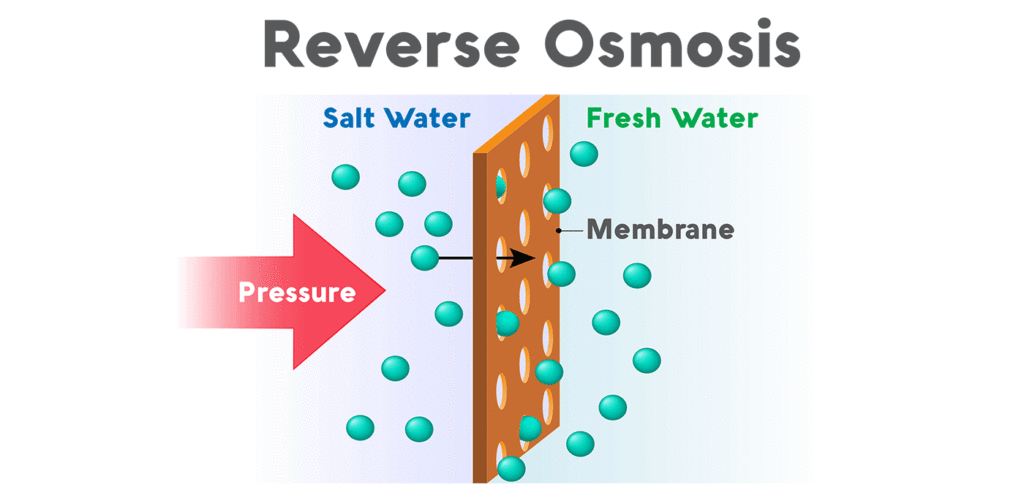
Depending upon the kitchen space you have and your filtration requirements, options of countertop filters and under-sink filters are available. These filters come with multiple stages wherein each stage performs a unique task of eliminating different types of contaminants found in water.
On the other hand, a whole house water filtration system is set up in your home to improve the water quality throughout your house. These filters remove chlorine, bacteria, sediment, and other harmful particles from the water supply of your entire house, ensuring that you get a freshwater supply.
Moreover, these systems also neutralize water’s acidity, so you won’t have to spend money on corrosion of appliances and plumbing fixtures.
Do You Need Both Water Filters and Water Softeners?
If you get a hard water supply in your house, you will need to invest in a good salt-based water softener to solve the issues that come with hard water. However, if the water you get is not very hard, a salt-free water conditioner should do the job for you.
There is a misconception among many people who think that they are consuming fresh, safe, and clean water because they have a water softener installed at home.
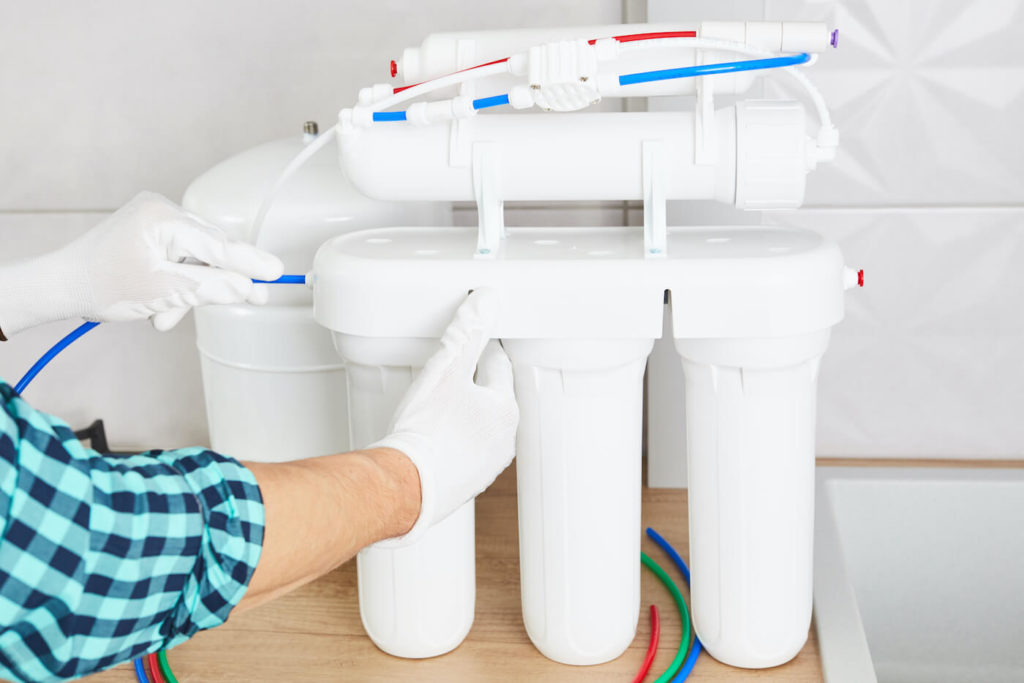
However, that is not the case as a water softener does not work as a water filtration system. Water softeners only reduce the hardness of water, and they don’t make it clean for consumption.
Suppose you want contaminant-free water for cooking, drinking, and other uses. In that case, you’ll have to invest in a sound quality water filtration system alongside a water softener to do the job for you.
Water Filter vs Water Softener: Which Option is Right for Your Household?
It can be confusing to decide whether you need to invest in a water filtration system, a water softener, or both. Choosing the right option for your home will depend upon the type of water supply you get and the issues you wish to address.

If irritated skin, dry hair, and spotty dishes are a concern for you, you should invest in a water softener to eliminate the problems concerned with hard water.
However, if your water tastes and smells bad, or you want clean and safe water for consumption, you should get a water filtration system for your home.
If both the problems mentioned above are a concern for you, it would be best to invest in both a water softener and a water filter.
The Bottom Line
Given the similarities that they come with, many people get confused about the differences between a water filtration system and a water softener. Depending on the water supply you get in your house, you should pick the right option between a water filter and a water softener.
A water softener will be the right option if you get a hard water supply. Signs of hard water include dry skin and hair and stains on clothes, among others. On the other hand, you’ll need a water filtration system to ensure that you get a clean and fresh drinking water supply at home.
FAQs
Does the hardness of water get eliminated by a water filtration system?
No. To get rid of hardness from water, you’ll need the help of a water softener. In this case, a water filtration system will be of no use as it does not get rid of the water’s hardness.
Can a water softener successfully get rid of chlorine from water?
All water softeners do not come with activated carbon, and hence, they fail to eliminate chlorine from water. Water softeners that use activated carbon have the ability to get rid of chlorine.
Are water softeners and water filters the same?
No, water filters and water softeners are made to solve different purposes. While water softeners are made to remove calcium and magnesium found in hard water, water filters are designed to eliminate most contaminants in water to make it safe for consumption.
Is softened water good for your health?
Yes, softened water is good for one’s health.
I own a water softener. Do I need a water filtration system as well?
Water softeners only eliminate magnesium and calcium from hard water. If you wish to get clean and healthy drinking water, you should invest in a water filtration system.
